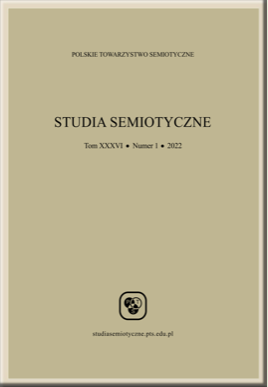THE IDENTITY OF FICTIONAL CHARACTERS
THE IDENTITY OF FICTIONAL CHARACTERS
Author(s): ENRICO GROSSOSubject(s): Semiology
Published by: Polskie Towarzystwo Semiotyczne
Keywords: mental files; indexed files; fictional characters; identity; co-reference;
Summary/Abstract: Fictional characters elicit prima facie conflicting intuitions. On the one hand, a fictional character seems linked to the particular work of fiction (a novel, a poem, a movie, etc.) in which it appears: Ulysses is described in one way in Homer’s epic poems, in another way in Virgil’s Aeneid, and in a still different way in Dante’s Divine Comedy. It is natural to distinguish Homer’s Ulysses from Virgil’s and Dante’s ones, since each of them has specific properties. On the other hand, we have the strong temptation to think that Ulysses is the same fictional character that persists in the passage from one poem to another, despite the change of features. The article tackles this kind of problems by focusing on the cognitive side. By adopting the theory of mental files, I will argue that all issues on the identity of literary characters here presented can be addressed without assuming the existence of fictional objects. Presumption of co-reference between multiple depictions of a given literary character is represented in our mind by means of a network of files, each one indexed to a work of fiction in which the character appears. Indexed files have a meta-representational function, so they do not need acquaintance with real objects. Linked indexed files do not refer, but still a unique reference is presuppose. They would have the same referent, if there was one.
Journal: Studia Semiotyczne
- Issue Year: 36/2022
- Issue No: 1
- Page Range: 41-62
- Page Count: 22
- Language: English

